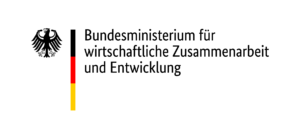
- This event has passed.
Expert discussion: Impending collapse or sustainable transformation? The role of the G7 in solving global debt crises
INVITATION
 The multiple crises of climate change, pandemic and global recession have led to the debt situation of many countries in the Global South assuming critical dimensions today. Three times as many countries as before the Corona pandemic are in a particularly critical debt situation (erlassjahr.de and MISEREOR: Global Sovereign Debt Monitor 2022). Many countries are already able to service their debt only by incurring new debt and cutting public spending for social security as well as other sustainable investments including sustainable infrastructure.
The multiple crises of climate change, pandemic and global recession have led to the debt situation of many countries in the Global South assuming critical dimensions today. Three times as many countries as before the Corona pandemic are in a particularly critical debt situation (erlassjahr.de and MISEREOR: Global Sovereign Debt Monitor 2022). Many countries are already able to service their debt only by incurring new debt and cutting public spending for social security as well as other sustainable investments including sustainable infrastructure.
The fiscal situation of countries in the Global South will be further exacerbated by the global economic impact of the war in Ukraine, including higher interest rates, food and energy prices. The debt situation thus threatens not only the immediate recovery from the pandemic, but also the socially just ecological transformation. But measures taken by the G20 so far have failed to bring about any substantial debt restructuring and / or debt relief, and no further progress is in sight. The World Bank recently warned of a humanitarian catastrophe in the Global South if unsustainable debt is not reduced quickly and fairly.
The G7 finance ministers will meet from May 18 to 20. As a community of values, the G7 states claim a special responsibility for shaping a future of “prosperity, stability and solidarity”. During the German G7 presidency, “the major economic and financial policy issues of the coming years” are to be advanced. This also includes achieving sustainable solutions for critically indebted countries.
In what ways have the measures taken so far contributed to avoiding and solving the debt crisis in the Global South? What should the “strengthened implementation of the international debt strategy” envisaged by the G7 look like in concrete terms in order to facilitate sustainable solutions? What short- and long-term adjustments to the international debt architecture are needed? And what role for the G7 vis-à-vis the G20 and the UN?
AGENDA
6:00 – 6:15 pm Welcoming
Dr. Klaus Schilder, MISEREOR, and Dr. Kathrin Berensmann, DIE
6:15 – 6:25 pm Keynote speech
Patricia Miranda, LATINDADD and international Co-Coordinator Civil7
6:25 – 8:00 pm Moderated panel discussion
Thomas Schäkermann, Multilateral Development Banks, Debt restructurings, Paris Club, German Federal Ministry of Finance
Marcello Estevão, Global Director Macroeconomics, Trade and Investment, World Bank
H.E. Dr. Walton Webson, Chair Alliance of Small Island States (AOSIS)
Dennis Shen, Director Sovereign and Public Sector, Scope Ratings
Prof. James Thuo Gathii, African Sovereign Debt Justice Network
Moderation: Kristina Rehbein, Political Coordinator erlassjahr.de
FORMAT
The event will be held in hybrid format. Participation is possible in person as well as virtually through the virtual event platform Zoom. The event language is English.
VENUE
In person: Engagement Global, Friedrich-Ebert-Allee 40, 53113 Bonn, Germany
Virtually: via Zoom
REGISTRATION
Participation in person: Please register at buero@erlassjahr.de
Virtual participation: Please register here: https://misereor.zoom.us/webinar/register/WN_2at-xR5LSaKdzuNiuidpMg
CONTACT INFORMATION
Kristina Rehbein, erlassjahr.de
Dr. Klaus Schilder, MISEREOR
Dr. Kathrin Berensmann, DIE
The event takes place in the context of the Civil7 (C7) and Think7 (T7) engagement processes in the context of the German G7 presidency 2022.
More information: https://civil7.org/ | https://www.think7.org/
FUNDING INFORMATION
Gefördert durch ENGAGEMENT GLOBAL mit Mitteln des

